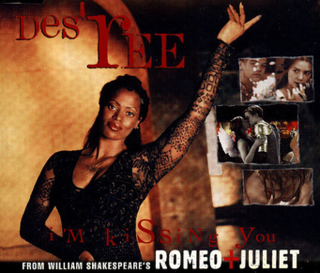
Napster was a peer-to-peer (P2P) file sharing application primarily associated with digital audio file distribution. Founded by Shawn Fanning and Sean Parker, the platform originally launched on June 1, 1999. Audio shared on the service was typically encoded in the MP3 format. As the software became popular, the company encountered legal difficulties over copyright infringement. Napster ceased operations in 2001 after losing multiple lawsuits and filed for bankruptcy in June 2002.

The American Society of Composers, Authors, and Publishers (ASCAP) is an American not-for-profit performance-rights organization (PRO) that collectively licenses the public performance rights of its members' musical works to venues, broadcasters, and digital streaming services.
A royalty payment is a payment made by one party to another that owns a particular asset, for the right to ongoing use of that asset. Royalties are typically agreed upon as a percentage of gross or net revenues derived from the use of an asset or a fixed price per unit sold of an item of such, but there are also other modes and metrics of compensation. A royalty interest is the right to collect a stream of future royalty payments.

The Audio Home Recording Act of 1992 (AHRA) amended the United States copyright law by adding Chapter 10, "Digital Audio Recording Devices and Media". The act enabled the release of recordable digital formats such as Sony and Philips' Digital Audio Tape without fear of contributory infringement lawsuits.

A&M Records, Inc. v. Napster, Inc., 239 F.3d 1004 was a landmark intellectual property case in which the United States Court of Appeals for the Ninth Circuit affirmed a district court ruling that the defendant, peer-to-peer file sharing service Napster, could be held liable for contributory infringement and vicarious infringement of copyright. This was the first major case to address the application of copyright laws to peer-to-peer file sharing.
Music licensing is the licensed use of copyrighted music. Music licensing is intended to ensure that the owners of copyrights on musical works are compensated for certain uses of their work. A purchaser has limited rights to use the work without a separate agreement.

The Harry Fox Agency (HFA) is a provider of rights management and collector and distributor of mechanical license fees on behalf of music publishers in the United States. HFA has over 48,000 music publishing clients and issues the largest number of licenses for physical and digital formats of music. It was founded in 1927 by the National Music Publishers Association. The agency was sold to performing rights organization SESAC in 2015, which was itself acquired by The Blackstone Group in 2017.

The Music Publishers Association of the United States (MPA) is a non-profit music publishing organization based in New York City. Founded in 1895, the MPA is the oldest music trade organization in the United States which addresses issues pertaining to print publishing with an emphasis on copyright education and advocacy.
Ultimate Guitar, also known as Ultimate-Guitar.com or simply UG, is an online platform for guitarists and musicians, started on October 9, 1998 by Eugeny Naidenov and based in San Francisco, US. Its website and mobile application provide free and paid user-submitted guitar tablatures and chord sheets, as well as video courses, reviews of music and equipment, interviews with musicians and forums.
A music publisher is a type of publisher that specializes in distributing music. Music publishers originally published sheet music. When copyright became legally protected, music publishers started to play a role in the management of the intellectual property of composers.

"Kissing You" is a song by British singer Des'ree. It was written by the singer with Timothy Atack for Baz Luhrmann's 1996 film Romeo + Juliet. The song was included on the film's soundtrack album and Des'ree's third studio album, Supernatural (1998). A pop ballad set in the key of A minor, the record uses a simple instrumentation consisting only of piano and string instruments. "Kissing You" featured in Romeo + Juliet when the title characters meet at a ball. The song was well received by critics for its emotional melody and toned-down production. First released as a single in Australia on 24 February 1997, it appeared on the ARIA Singles Chart and the UK Singles Chart. A music video accompanied the single, which included scenes from Romeo + Juliet. This song is also used in Season 2, Episode 2 of ‘’The Summer I Turned Pretty’’.

The Online Copyright Infringement Liability Limitation Act (OCILLA) is United States federal law that creates a conditional 'safe harbor' for online service providers (OSP), a group which includes Internet service providers (ISP) and other Internet intermediaries, by shielding them for their own acts of direct copyright infringement as well as shielding them from potential secondary liability for the infringing acts of others. OCILLA was passed as a part of the 1998 Digital Millennium Copyright Act (DMCA) and is sometimes referred to as the "Safe Harbor" provision or as "DMCA 512" because it added Section 512 to Title 17 of the United States Code. By exempting Internet intermediaries from copyright infringement liability provided they follow certain rules, OCILLA attempts to strike a balance between the competing interests of copyright owners and digital users.

Tablature is a form of musical notation indicating instrument fingering or the location of the played notes rather than musical pitches.
Dean Kay is a US American entertainer, recording artist, songwriter and music publishing executive.

A copyright troll is a party that enforces copyrights it owns for purposes of making money through strategic litigation, in a manner considered unduly aggressive or opportunistic, sometimes without producing or licensing the works it owns for paid distribution. Critics object to the activity because they believe it does not encourage the production of creative works, but instead makes money through the inequities and unintended consequences of high statutory damages provisions in copyright laws intended to encourage creation of such works.
Metallica, et al. v. Napster, Inc. was a 2000 U.S. District Court for the Northern District of California case that focused on copyright infringement, racketeering, and unlawful use of digital audio interface devices. Metallica vs. Napster, Inc. was the first case that involved an artist suing a peer-to-peer file sharing ("P2P") software company.

Warner/Chappell Music Inc. et al. v. Fullscreen Inc. et al. (13-cv-05472) was a case against multi-channel network Fullscreen, filed by the National Music Publishers Association on behalf of Warner/Chappell Music and 15 other music publishers, which alleged that Fullscreen illegally reaped the profits of unlicensed cover videos on YouTube without paying any royalties to the rightful publishers and songwriters.

David Israelite is an American music executive. He has been president of the National Music Publishers Association since 2005.
Music ownership databases are lists of the owners of compositions and the people who represent them. Often, a piece of music will have more than one owner. This is caused by Publishing contracts, co-writing, band contracts, label deals, and similar music contracts. Music ownership databases are created from the idea that with more transparency about the owners of musical compositions, the lower the costs become to create and use music. For example, a derivative license is needed when a portion of a piece of music is used in a different piece, which is a common practice in hip hop music, among other genres. In American copyright laws, a derivative work must have permission from every owner of the original work. If it is not known who the original owner of the work was and artists use it anyway, then they can be sued for copyright infringement. A music ownership database, major industry players speculate, would eliminate this problem. This is apparent through the amount of time and money spent in attempting to create this database.

The Orrin G. Hatch–Bob Goodlatte Music Modernization Act, or Music Modernization Act or MMA is United States legislation signed into law on October 11, 2018 aimed to modernize copyright-related issues for music and audio recordings due to new forms of technology such as digital streaming. It is a consolidation of three separate bills introduced during the 115th United States Congress.











